#WorldBuilding
Text
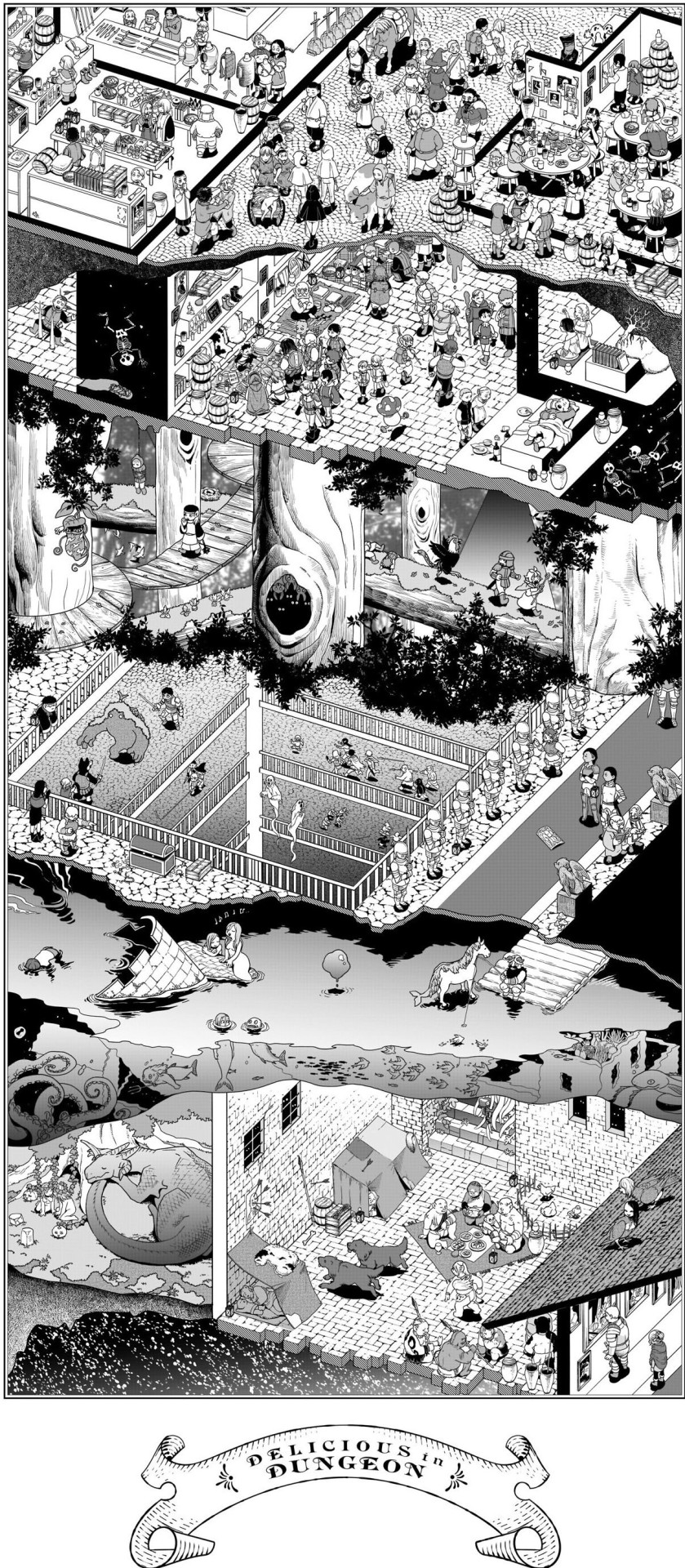
Dungeon Meshi Adventurer's Bible - Dungeon cross section
Details under the cut
Details cropped from this reddit post
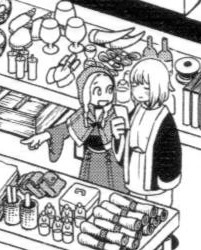
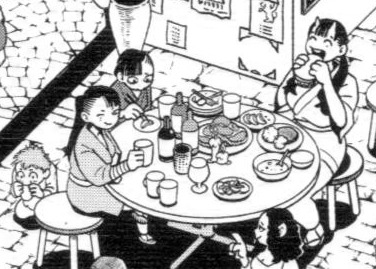
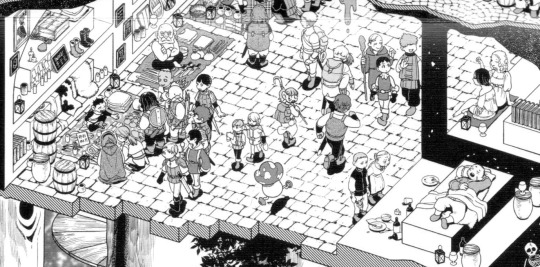
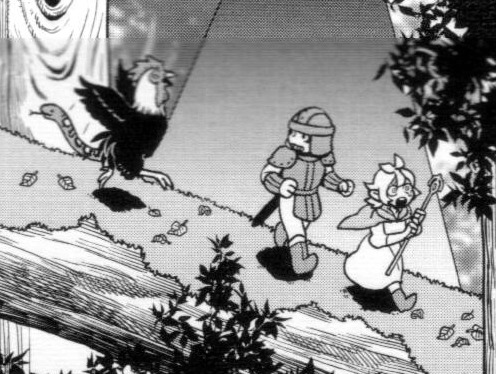
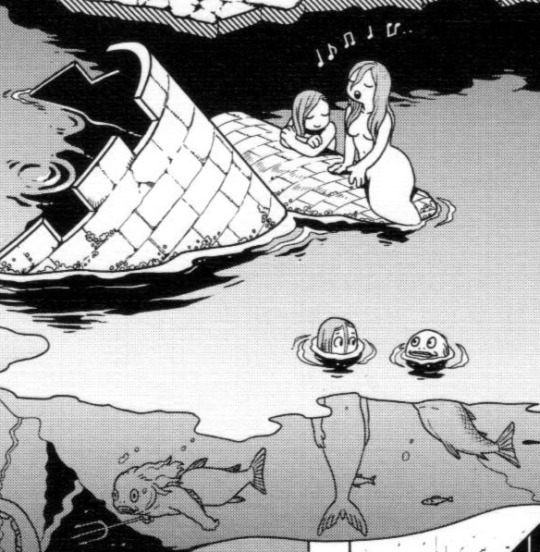
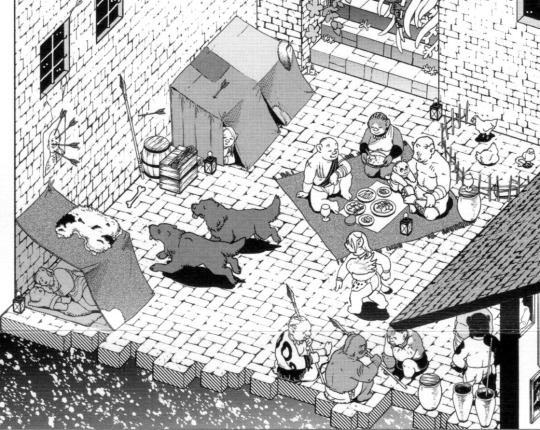
#Dungeon Meshi#adventurers bible#took me a LONG time to find a good quality full version of this#please open the full image to properly see it#tumblr mobile also ruins the quality..#Falin touden#marcille donato#chilchuck tims#leed#leed dungeon meshi#orcs#mermaid#fionil#doni#inutade#tade#hien#benichidori#is hien winking at the waitress?#worldbuilding#dungeon layout#dungeon levels#red dragon#dungeon meshi orcs
2K notes
·
View notes
Note
Do saratoans associate the shades of ashy brown that are natural to their species' skin under the magical pigmentation with death? Sorry for the kinda morbid question, I was just thinking about how controversial open-casket funerals are in some cultures (as one does) and your guys crossed my mind in context with that.
Not generally - it's considered an inappropriate color for say, a saratoan dolly, since that makes it look like a corpse, but shades of gray and taupe are popular for clothes where it's just judged to be a nice neutral tone that their bright skin colors pop against.
It takes a bit more effort to choose accessories that read as symbolic of death to them. Their funeral rites are themed around the color the deceased was in life, mourners bring items of the same color to place by the body, creating a cluttered collection of items of the same color
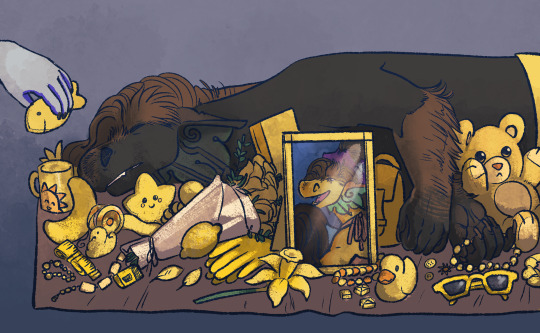
The symbolism of death is a little more individualized as a result. The color of "goth" for Saratoans is just whatever color they are + excessive clutter
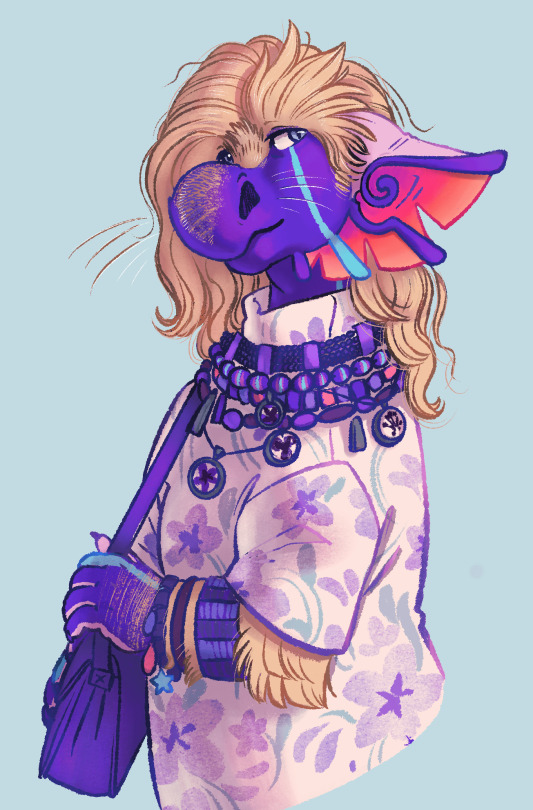
Dressing like this is ironically considered off putting by younger adults and is accepted more warmly by elders rather than being a way to shock and rebel against elder generations.
Elders generally read an outfit like this as "funeral director" which is a role not considered totally necessary to the management of rites, but are a welcome relief to overworked household leaders to have someone experienced available to support them.
#death#funeral rites#funeral practices#worldbuilding#saratoan#I like rando funeral director girl I'm gonna develop her more#dime made this
248 notes
·
View notes
Text

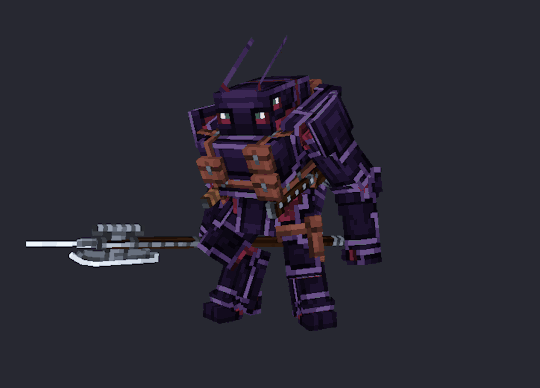

From my personal project of Myr:
The second generation of Surchitine used by the Sentinels of Myr.
For the lore ->https://sites.google.com/view/myr-worldbuilding/myr/alchimie-organique/surchitines
Exiting and entering the surchitine. And a comparison between 1st and 2nd generation.
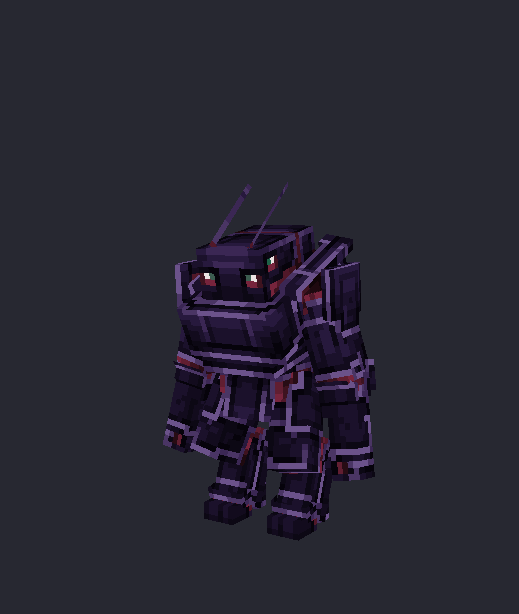

#3d#blockbench#lowpoly#pixel art#minecraft#monster#creature#myr#golem#alchemy#organic#insect#ant#armor#living armor#lore#worldbuilding
214 notes
·
View notes
Text
Worldbuilding thought.
Elves live a lot longer than other people... But not as much longer as everyone thinks.
Elves over 1000 years old are common. They are the sources of all known history, first-hand account of centuries past.
But some point in extablishing Elven translation they missed that Elves work in base-6 and 1000 is actually just 216.
No-one else lives long enough to realise this discrepancy because that's still like three human life-spans, and Elves care too little about everyone else to notice it. They believe that human lives are merely a blink of the eye for them because if they blink they've already forgotten about you.
366 notes
·
View notes
Text
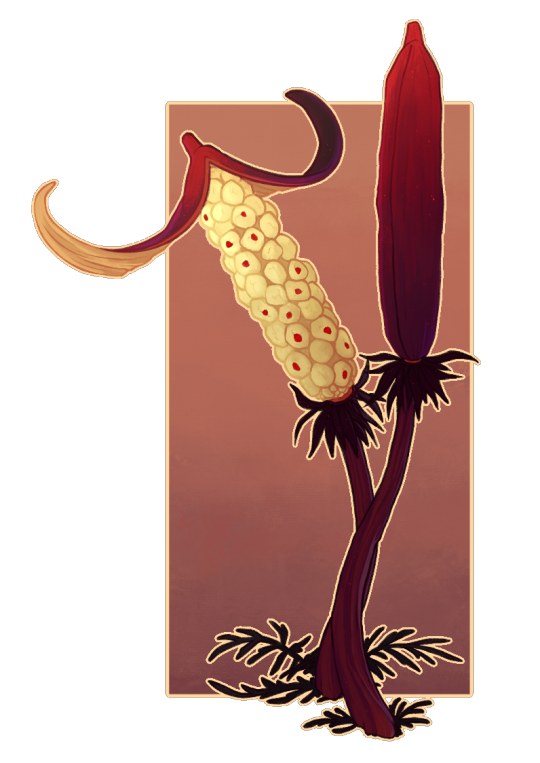
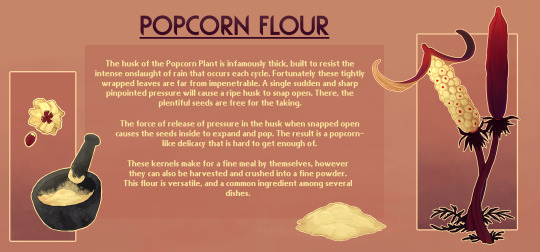
In regards of taste, if you stuff your face with the flour as is, it's mostly like cornmeal and unsalted popcorn.
#rain world#rain world fanart#rain world downpour#worldbuilding#rw worldbuilding#speculative biology#spec bio#fanart#delicious in rain world
243 notes
·
View notes
Text
Xa ontogeny
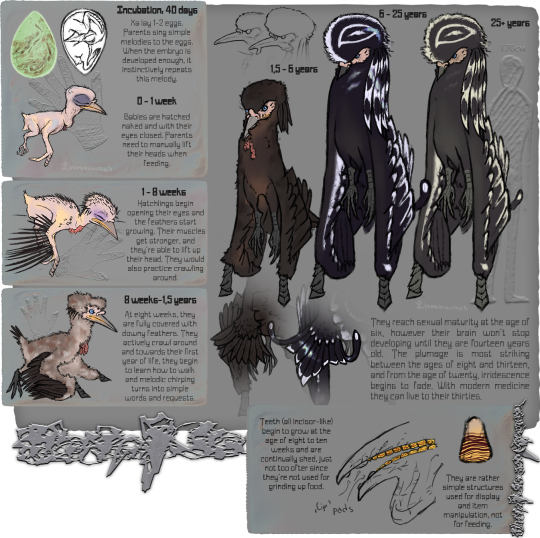
The Xa and how they grow. The brown-feathered kiddos past age of 1,5 are already able to fly somewhat. Xa don't show any sexual dimorphism, so there's only one Xa image for each life stage. Here's more about this sophont: https://www.tumblr.com/total-convergence/726112557515128832/tcxa
#speculative evolution#creature design#artists on tumblr#digital art#spec bio#spec evo#worldbuilding#speculative fiction#artwork#my art#art#reference sheet#bird art#small artist#digital artist#oc artist#drawing#illustration#scifi#scifi worldbuilding#imagination#oc art#oc#original species#speculative biology#bird oc#corvidae#magpie
94 notes
·
View notes
Text
Dealing with Healing and Disability in fantasy: Writing Disability
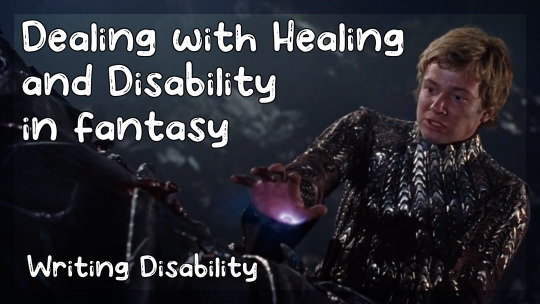
[ID: An image of the main character from Eragon, a white teenage boy with blond hair in silver armour as he sits, with his hand outstretched. On his hand is a glowing blue mark. He is visibly straining as he attempts to heal a large creature in front of him. /End ID]
I'm a massive fan of the fantasy genre, which is why it's so incredibly frustrating when I see so much resistance to adding disability representation to fantasy works. People's go-to reason for leaving us out is usually something to the effect of "But my setting has magic so disability wouldn't exist, it can just be healed!" so let's talk about magic, specifically healing magic, in these settings, and how you can use it without erasing disability from your story.
Ok, let's start with why you would even want to avoid erasing disability from a setting in the first place. I talked about this in a lot more detail in my post on The Miracle Cure. this line of thinking is another version of this trope, but applied to a whole setting (or at least, to the majority of people in the setting) instead of an individual, so it's going to run into the same issues I discussed there. To summarise the points that are relevant to this particular version of the trope though:
Not every disabled person wants or needs a cure - many of us see our disability as a part of our identity. Do difficulties come with being disabled? absolutely! It's literally part of the definition, but for some people in the disabled community, if you took our disabilities away, we would be entirely different people. While it is far from universal, there is a significant number of us who, if given a magical cure with no strings attached, would not take it. Saying no one in your setting would be disabled because these healing spells exists ignores this part of the community.
It messes with the stakes of your story - Just like how resurrecting characters or showing that this is something that is indeed possible in the setting can leave your audience feeling cheated or like they don't have to worry about a character *actually* ever dying. healing a character's disability, or establishing that disability doesn't exist in your setting because "magic" runs into the same problem. It will leave your readers or viewers feeling like they don't have to worry about your characters getting seriously hurt because it will only be temporary, which means your hero's actions carry significantly less risk, which in turn, lowers the stakes and tension if not handled very, very carefully.
It's an over-used trope - quite plainly and simply, this trope shows up a lot in the fantasy genre, to the point where I'd say it's just overused and kind of boring.
So with the "why should you avoid it" covered, let's look at how you can actually handle the topic.
Limited Access and Expensive Costs
One of the most common ways to deal with healing and disability in a fantasy setting, is to make the healing magic available, but inaccessible to most of the population. The most popular way to do that is by making the services of a magical healer capable of curing a disability really expensive to the point that most people just can't afford it. If this is the approach you're going to use, you also typically have to make that type of magic quite rare. To use D&D terms, if every first level sorcerer, bard, cleric and druid can heal a spinal injury, it's going to result in a lot of people who are able to undercut those massive prices and the expense will drop as demand goes down.
If that last sentence didn't give you a hint, this is really popular method in stories that are critiquing capitalistic mindsets and ideologies, and is most commonly used by authors from the USA and other countries with a similar medical system, since it mirrors a lot of the difficulties faced by disabled Americans. If done right, this approach can be very effective, but it does need to be thought through more carefully than I think people tend to do. Mainly because a lot of fantasy stories end with the main character becoming rich and/or powerful, and so these prohibitively expensive cure become attainable by the story's end, which a lot of authors and writer's just never address.
Of course, another approach is to make the availability of the magic itself the barrier. Maybe there just aren't that many people around who know the magic required for that kind of healing, so even without a prohibitive price tag, it's just not something that's an option for most people. If we're looking at a D&D-type setting, maybe you need to be an exceptionally high level to cast the more powerful healing spell, or maybe the spell requires some rare or lost material component. I'd personally advise people to be careful using this approach, since it often leads to stories centred around finding a miracle cure, which then just falls back into that trope more often than not.
Just outright state that some characters don't want/need it
Another, admittedly more direct approach, is to make it that these "cures" exist and are easily attainable, but to just make it that your character or others they encounter don't want or need it. This approach works best for characters who are born with their disabilities or who already had them for a long time before a cure was made available to them. Even within those groups though, this method works better with some types of characters than others depending on many other traits (personality, cultural beliefs, etc), and isn't really a one-size-fits-all solution, but to be fair, that's kind of the point. Some people will want a cure for their disabilities, others are content with their body's the way they are.
There's a few caveats I have with this kind of approach though:
you want to make sure you, as the author, understand why some people in real life don't want a cure, and not just in a "yeah I know these people exist but I don't really get it" kind of way. I'm not saying you have to have a deep, personal understanding or anything, but some degree of understanding is required unless you want to sound like one of those "inspirational" body positivity posts that used to show up on Instagram back in the day.
Be wary when using cultural beliefs as a reasoning. It can work, but when media uses cultural beliefs as a reason for turning down some kind of cure, it's often intending to critique extreme beliefs about medicine, such as the ones seen in some New Age Spirituality groups and particularly intense Christian churches. As a general rule of thumb, it's probably not a good idea to connect these kinds of beliefs to disabled people just being happy in their bodies. Alternatively, you also need to be mindful of the "stuck in time" trope - a trope about indigenous people who are depicted as primitive or, as the name suggests, stuck in an earlier time, for "spurning the ways of the white man" which usually includes medicine or the setting's equivalent magic. I'm not the best person to advise you on how to avoid this specific trope, but my partner (who's Taino) has informed me of how often it shows up in fantasy specifically and we both thought it was worth including a warning at least so creators who are interested in this method know to do some further research.
Give the "cures" long-lasting side effects
Often in the real world, when a "cure" for a disability does exist, it's not a perfect solution and comes with a lot of side effects. For example, if you loose part of your arm in an accident, but you're able to get to a hospital quickly with said severed arm, it can sometimes be reattached, but doing so comes at a cost. Most people I know who had this done had a lot of issues with nerve damage, reduced strength, reduced fine-motor control and often a great deal of pain with no clear source. Two of the people I know who's limbs were saved ended up having them optionally re-amputated only a few years later. Likewise, I know many people who are paraplegics and quadriplegics via spinal injuries, who were able to regain the use of their arms and/or legs. However, the process was not an easy one, and involved years of intense physiotherapy and strength training. For some of them, they need to continue to do this work permanently just to maintain use of the effected limbs, so much so that it impacts their ability to do things like work a full-time job and engage in their hobbies regularly, and even then, none of them will be able bodied again. Even with all that work, they all still experience reduced strength and reduced control of the limbs. depending on the type, place and severity of the injury, some people are able to get back to "almost able bodied" again - such was the case for my childhood best friend's dad, but they often still have to deal with chronic pain from the injury or chronic fatigue.
Even though we are talking about magic in a fantasy setting, we can still look to real-life examples of "cures" to get ideas. Perhaps the magic used has a similar side effect. Yes, your paraplegic character can be "cured" enough to walk again, but the magic maintaining the spell needs a power source to keep it going, so it draws on the person's innate energy within their body, using the very energy the body needs to function and do things like move their limbs. They are cured, but constantly exhausted unless they're very careful, and if the spell is especially strong, the body might struggle to move at all, resulting in something that looks and functions similar to the nerve damage folks with spinal injuries sometimes deal with that causes that muscle weakness and motor control issues. Your amputee might be able to have their leg regrown, but it will always be slightly off. The regrown leg is weaker and causes them to walk with a limp, maybe even requiring them to use a cane or other mobility aid.
Some characters might decide these trade-offs are worth it, and while this cures their initial disability, it leaves them with another. Others might simply decide the initial disability is less trouble than these side effects, and choose to stay as they are.
Consider if these are actually cures
Speaking of looking to the real world for ideas, you might also want to consider whether these cures are doing what the people peddling them are claiming they do. Let's look at the so-called autism cures that spring up every couple of months as an example.
Without getting into the… hotly debated specifics, there are many therapies that are often labelled as "cures" for autism, but in reality, all they are doing is teaching autistic people how to make their autistic traits less noticeable to others. This is called masking, and it's a skill that often comes at great cost to an autistic person's mental health, especially when it's a behaviour that is forced on them. Many of these therapies give the appearance of being a cure, but the disability is still there, as are the needs and difficulties that come with it, they're just hidden away. From an outside perspective though, it often does look like a success, at least in the short-term.
Then there are the entirely fake cures with no basis in reality, the things you'll find from your classic snake-oil salesmen. Even in a fantasy setting where real magic exists, these kinds of scams and misleading treatments can still exist. In fact, I think it would make them even more common than they are in the real world, since there's less suspension of disbelief required for people to fall for them. "What do you mean this miracle tonic is a scam? Phil next door can conjure flames in his hand and make the plants grow with a snap of his fingers, why is it so hard to believe this tonic could regrow my missing limb?"
I think the only example of this approach I've seen, at least recently, is from The Owl House. The magic in this world can do incredible things, but it works in very specific and defined ways. Eda's curse (which can be viewed as an allegory for many disabilities and chronic illnesses) is seemingly an exception to this, and as such, nothing is able to cure it. Treat it, yes, but not cure it. Eda's mother doesn't accept this though, and seeks out a cure anyway and ends up falling for a scam who's "treatments" just make things worse.
In your own stories, you can either have these scams just not work, or kind of work, but in ways that are harmful and just not worth it, like worse versions of the examples in the previous point. Alternatively, like Eda, it's entirely reasonable that a character who's been the target of these scams before might just not want to bother anymore. Eda is a really good example of this approach handled in a way that doesn't make her sad and depressed about it either. She's tried her mum's methods, they didn't work, and now she's found her own way of dealing with it that she's happy with. She only gets upset when her boundaries are ignored by Luz and her mother.
Think about how the healing magic is actually working
If you have a magic system that leans more on the "hard magic" side of things, a great way to get around the issue of healing magic erasing disability is to stop and think about how your healing magic actually works.
My favourite way of doing this is to make healing magic work by accelerating the natural processes of your body. Your body will, given enough time (assuming it remains infection-free) close a slash from a sword and mend a broken bone, but it will never regrow it's own limbs. It will never heal damage to it's own spinal cord. It will never undo whatever causes autism or fix it's own irregularities. Not without help. Likewise, healing magic alone won't do any of these things either, it's just accelerating the existing process and usually, by extension making it safer, since a wound staying open for an hour before you get to a healer is much less likely to get infected than one that slowly and naturally heals over a few weeks.
In one of my own works, I take this even further by making it that the healing magic is only accelerating cell growth and repair, but the healer has to direct it. In order to actually heal, the healer needs to know the anatomy of what they're fixing to the finest detail. A spell can reconnect a torn muscle to a bone, but if you don't understand the structures that allow that to happen in the first place, you're likely going to make things worse. For this reason, you won't really see people using this kind of magic to, say, regrow limbs, even though it technically is possible. A limb is a complicated thing. The healer needs to be able to perfectly envision all the bones, the cartilage, the tendons and ligaments, the muscles (including the little ones, like those found in your skin that make your hair stand on end and give you goose bumps), the fat and skin tissues, all the nerves, all the blood vessels, all the structures within the bone that create your blood. Everything, and they need to know how it all connects, how it is supposed to move and be able to keep that clearly in their mind simultaneously while casting. Their mental image also has to match with the patient's internal "map" of the body and the lost limb, or they'll continue to experience phantom limb sensation even if the healing is successful. It's technically possible, but the chances they'll mess something up is too high, and so it's just not worth the risk to most people, including my main character.
Put Restrictions on the magic
This is mostly just the same advice as above, but for softer magic systems. put limits and restrictions on your healing magic. These can be innate (so things the magic itself is just incapable of doing) or external (things like laws that put limitations on certain types of magic and spells).
An example of internal restriction can be seen in how some people interpret D&D's higher level healing spells like regenerate (a 7th level spell-something most characters won't have access to for quite some time). The rules as written specify that disabilities like lost limbs can be healed using this spell, but some players take this to mean that if a character was born with the disability in question, say, born without a limb, regenerate would only heal them back to their body's natural state, which for them, is still disabled.
An external restriction would be that your setting has outlawed healing magic, perhaps because healing magic carries a lot of risks for some reason, eithe to the caster or the person being healed, or maybe because the healing magic here works by selectively reviving and altering the function of cells, which makes it a form of necromancy, just on a smaller scale. Of course, you can also use the tried and true, "all magic is outlawed" approach too. In either case, it's something that will prevent some people from being able to access it, despite it being technically possible. Other external restrictions could look like not being illegal, per say, but culturally frowned upon or taboo where your character is from.
But what if I don't want to do any of this?
Well you don't have to. These are just suggestions to get you thinking about how to make a world where healing magic and disability exist, but they aren't the only ways. Just the ones I thought of.
Of course, if you'd still rather make a setting where all disability is cured because magic and you just don't want to think about it any deeper, I can't stop you. I do however, want to ask you to at least consider where you are going to draw the line.
Disability, in essence, is what happens when the body stops (or never started) functioning "normally". Sometimes that happens because of an injury, sometimes it's just bad luck, but the boundary between disabled and not disabled is not as solid as I think a lot of people expect it to be, and we as a society have a lot of weird ideas about what is and isn't a disability that just, quite plainly and simply, aren't consistent. You have to remember, a magic system won't pick and choose the way we humans do, it will apply universally, regardless of our societal hang-ups about disability.
What do I mean about this?
Well, consider for a moment, what causes aging?
it's the result of our body not being able to repair itself as effectively as it used to. It's the body not being able to perform that function "normally". So in a setting where all disability is cured, there would be no aging. No elderly people. No death from old age. If you erase disability, you also erase natural processes like aging. magic won't pick and choose like that, not if you want it to be consistent.
Ok, ok, maybe that's too much of a stretch, so instead, let's look at our stereotypical buff hero covered in scars because he's a badass warrior. but in a world where you can heal anything, why would anything scar? Even if it did, could another healing spell not correct that too? Scars are part of the body's natural healing process, but if no natural healing occurred, why would a scar form? Scars are also considered disabling in and of themselves too, especially large ones, since they aren't as flexible or durable as normal skin and can even restrict growth and movement.
Even common things like needing glasses are, using this definition of disability at least, a disability. glasses are a socially accepted disability aid used to correct your eyes when they do not function "normally".
Now to be fair, in reality, there are several definitions of disability, most of which include something about the impact of society. For example, in Australia (according to the Disability Royal Commission), we define disability as "An evolving concept that results from the interaction between a person with impairment(s) and attitudinal and environmental barriers that hinder their full and effective participation in society on an equal basis with others." - or in laymen's terms, the interaction between a person's impairment and societal barriers like people not making things accessible or holding misinformed beliefs about your impairment (e.g. people in wheelchairs are weaker than people who walk). Under a definition like this, things like scars and needing glasses aren't necessarily disabilities (most of the time) but that's because of how our modern society sees them. The problem with using a definition like this though to guide what your magic system will get rid of, is that something like a magic system won't differentiate between an "impairment" that has social impacts that and one that doesn't. It will still probably get rid of anything that is technically an example of your body functioning imperfectly, which all three of these things are. The society in your setting might apply these criteria indirectly, but really, why would they? Very few people like the side effects of aging on the body (and most people typically don't want to die), the issues that come with scars or glasses are annoying (speaking as someone with both) and I can see a lot of people getting rid of them when possible too. If they don't then it's just using the "not everyone wants it approach" I mentioned earlier. If there's some law or some kind of external pressure to push people away from fixing these more normalised issues, then it's using the "restrictions" method I mentioned earlier too.
Once again, you can do whatever you like with your fantasy setting, but it's something I think that would be worth thinking about at least.
#Writing disability with Cy Cyborg#Long Post#Disability#Disabled#Disability Representation#Writing Disability#Writing#Writeblr#Authors#Creators#Writing Advice#Disabled Characters#On Writing#Disability in Media#Tropes#Disability Tropes#magic#fantasy#worldbuilding#magic systems
73 notes
·
View notes
Text

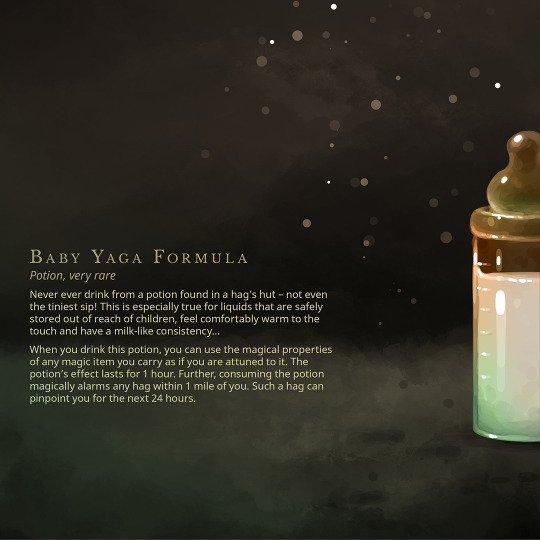
Baby Yaga Formula – Potion, very rare
Never ever drink from a potion found in a hag’s hut – not even the tiniest sip! This is especially true for liquids that are safely stored out of reach of children, feel comfortably warm to the touch and have a milk-like consistency...
🔮 If you like my work, kindly consider to support me on Patreon to gain access to monster pages, tokens & artwork of over 250 quirky creatures as well as dozens of potion & item cards based on their lore.
#fantasy art#artists on tumblr#magic potion#baldur's gate 3#dnd item#d&d 5e#illustration#artist#animation#art#dnd#hand drawn#homebrew#paintings#fantasy#digital art#dungeons and dragons#ciritcal role#ttrpg#worldbuilding
59 notes
·
View notes
Text
Nether crows coming soon…. 👀
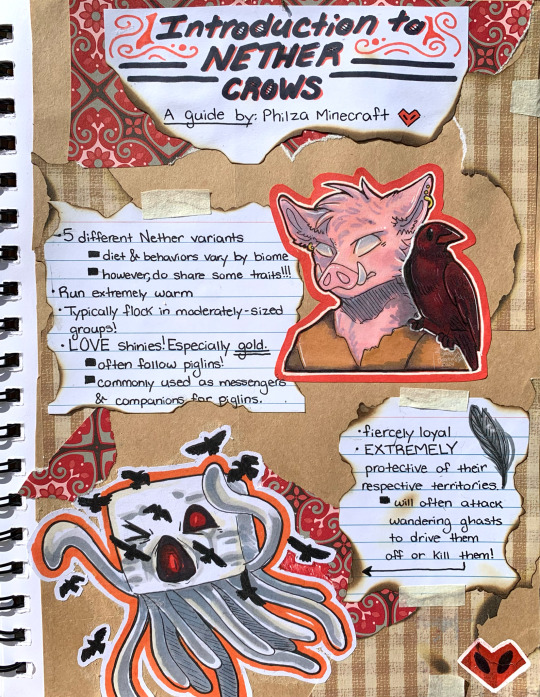
[Reminder that my asks are open and that you’re more than welcome to ask questions or scream at me about Minecraft crows]
Transcript and Closeups below!!!
INTRODUCTION TO NETHER CROWS
A guide by: Philza Minecraft
5 different Nether variants
Diet and behavior vary by biome
However, do share some traits!!!
Run extremely warm
Typically flock in moderately-sized groups!
LOVE shinies! Especially gold
Often follow piglins
Commonly used as messengers or companions for piglins
Fiercely loyal
EXTREMELY protective of their respective territories
Will often attack wandering ghosts to drive them off of kill them!
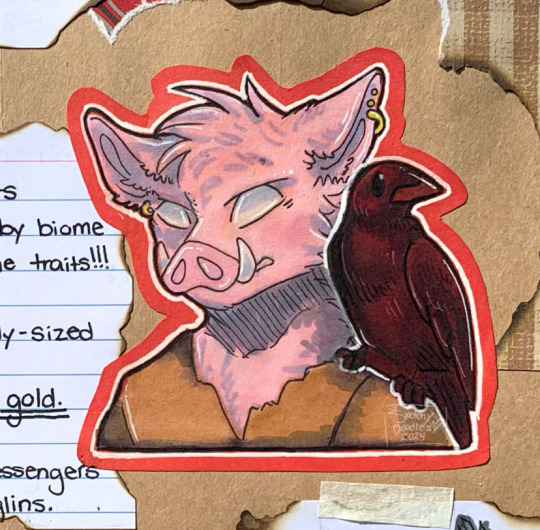
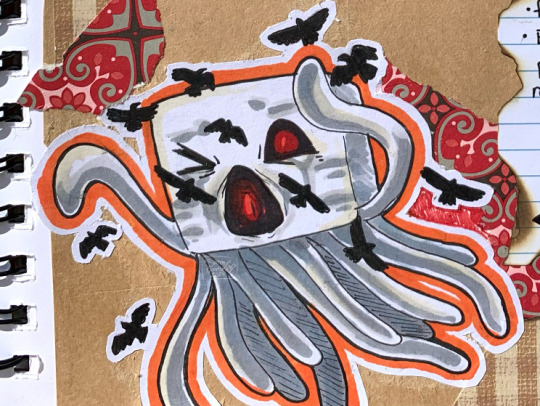
#philza#mcyt#philza minecraft#philza fanart#worldbuilding#Minecraft#crows#sketchy’s doodles#Minecraft crows
67 notes
·
View notes
Text
#worldbuilding#fantasy worldbuilding#writers#creative writing#writing#writing community#writers of tumblr#creative writers#writing inspiration#writeblr#writerblr#writing tips#helping writers#writing science fiction#fantasy world building#writing fantasy#writing games#writing exercise#writing exercises#let's write#resources for writers#writers on tumblr#how to write#writers and poets#writer's block#beat writers block#writers block#story inspiration#writer#writing advice
54 notes
·
View notes
Text
You work with people from other dimensions for a living. While you can travel to other dimensions, it's much easier to just connect your computer to computers from other dimensions. You end up finding out about a lot of strange places, alternate earths where things are diffrent in ways you could never imagine. Most people don't even know other dimensions exist, but to you it all feels so normal, so very distant but so very normal.
Because the company that you work on interdimensional technology for needs to outsource some of its dimensional work you end up very quickly having to contact people from other dimensions with a similar skillset to you for one project. And since it's easy to contact them you end up talking to them afterwards.
There's this one girl you end up messaging a lot. She seems so nice and sweet. You talk a lot about programing, and mathematics and magic (which are all very closely connected fields), she's one of the only people who seems to really understand the beauty in it the way you do. She's obviously from a very diffrent culture, and you never sent eachother images, but you like eachother a lot.
You end up messaging this girl more and more. She's the first to comfort you when one of your freinds turned on you, she was the first to support you when you came out to your parents, even though she didn't fully know what coming out was. She messages you "I love you" in the mornings sometimes. And even though she's far away, further way than anything in the universe, you understand her so well. You've seen her art, drawings she's done of buildings and structures around where she lives, they're like nothing you've ever seen before.
You start to talk about being in a romantic relationship. It's hard but you decide it's what you should do, almost what you have to do. You want to be her girlfriend, you want to know how it feels to hug her, for her to rest her head on your breasts on a warm summer night, to be inside eachother, to touch in a way you don't get to touch. But you can still message eachother, it's just one small contact but it means so much. You want to move in with her, it might never happen but there's something inside of you that wants to wake up next to her every morning.
Eventually you decide to build a portal to eachother, so you can see eachother, and if all goes well, you'll actually move in. You both need to talk to a lot of people, and get help from a lot of programmers and spellcasters from several dimensions, but it's done. The money that was supposed to let you move into a bigger apartment ends up going to a doorway sized portal, stored one of the few buildings in the city that can store such things. You need to get a ticket to go, even though the portal is yourse it needs people to operate it. But you can go. And if all goes well, you'll live together.
When you get to her dimension the first thing you feel is fear. It's dark, you think your underground, only a few bioluminescent organisms light the way. The city you're in is wet, and cold yet humid, everything is made of either moist steel, or dark wood that's covered in some strange layer of material that feels like wet cardboard. The creatures here aren't human at all, they're all strange bug like and fish like beings.
You eventually go to your girlfriend's apartment. Afraid of what you'll see. It's completely dark inside, and decorated like no human would ever decorate anything. When you see your girlfriend for the first time the horror breaks the love you want to feel. Her body looks humanoid, though she's so thin you can see her ribs, and pale in a way only corpses are useally pale. Her face was almost pretty, but her eyes were one solid pinkish color, and her moulth was just a tiny hole, like a jawless fish, it couldn't move at all. And massive fleshy tentacles came from her back, four of them, with razor teeth at their ends, for chewing her food outside her body so that her tiny slit of a mouth can lap it up. You both just stand there, you realize that this is the girl you love, you realize you look as horrifying to her as she does to you. You begin to weep, and she doesn't understand what your eyes are doing.
You spend the night in her apartment. There's no way you're moving in together. You're not sure what this means. You don't want to look at her at first, but eventually you do. You realize if you have to go back to your world you do want to spend time with her. Your languages work so differently that you still need to use computers to talk to eachother, but you can talk to eachother. And you tell her that you're sorry, that you still want to be together.
You let her hug you, and comfort you, her body is so strange, but it becomes less scary when you fully realize that it's her your looking at, that that's who you've messaged all those nights. Despite her eyes and mouth her face is pretty, and though her body is much thinner then you expected she still moves gracefully. You let her touch you, every way she wanted to touch you, let her tentacles wrap around your body. She shows you her computer setup, and her favorite video games, and she even gets to introduce you to some of her freinds, and her little isopod like pet who really likes being pet by you. You can't help but feel uncomfortable in her dimension, but you feel safe with her, and despite everything you enjoy being held and touched by her. At the end of your stay you make love for the first time, you don't have the same genitals as her species, but you make it work. You fall asleep in her arms, and she would do the same to you, but her kind does not sleep.
When you go back home, because you do have to go back home, you don't tell many people, even people who know about dimensions, what happened where you went. But you still message her a lot, and when you can you visit her, and very rarely she'll visit you. Your mother would never approve, and no priest would marry you, but you can't help but fall into the feeling of her body next to yourse.
#196#my thougts#worldbuilding#writing#my worldbuilding#my writing#fantasy#urban fantasy#lesbian#wlw#queer romance#paranormal romance#monster fucker#monster lover#monster girl#magical realism#short fiction#short story#flash fiction#original fiction#tentacles#eldrich horror#eldritch#eldrich#eldritch horror#scifi#science fantasy#science fiction#sci fi#dimensions
60 notes
·
View notes
Text
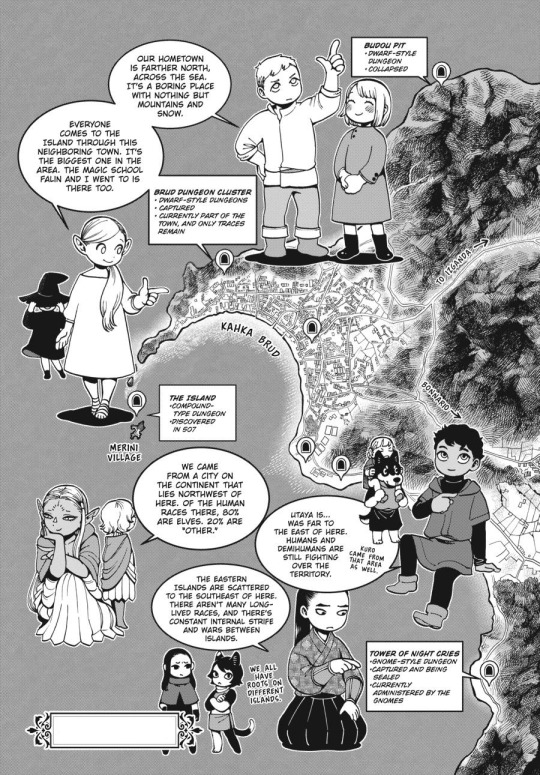
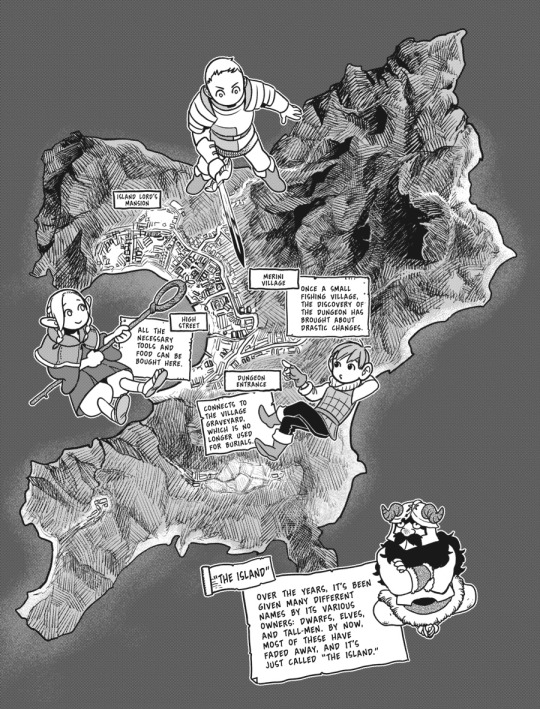
Dungeon Meshi - Kahka Brud and The Island
Kahka Brud - Town adventurer's go through to arrive at The Island, where the dungeon was discovered.
The Island - Island situated off the coast of Kahka Brud, The Dungeon was discovered conected to the village's graveyard.
Merini (Or Melini) - The Village where the Adventurer's stay and make preparations before adventuring in The Dungeon.
Image Texts under the cut
First Image Showing Kahka Brud
Laios pointing up: Our hometown is farther north across the sea. It's a boring place with nothing but mountains and snow.
Marcille pointing to Kahka Brud: Everyone comes to the island through this neighboring town. It's the biggest one in the area. The Magic School Falin and I went to is there too.
Cythis pointing west talking about the canaries: We came from a city on the continent that lies northwest of here. Of the human races there 80% are elves. 20% are "other."
Kabru pointing east (tiny Kuro with Mickbell on his shoulders besides him): Utaya is… was far to the east of here. Humans and Demihumans are still fighting over the territory. Kuro came from that area as well.
Shuro point downwards east: The Eastern Islands are scattered to the southeast of here. There aren't many longlived races, and there's constant internal strife and wars between islands.
Tiny Izutsumi and Rin: We all have roots on different islands.
Dungeons:
Budou Pit
Dwarf-Style Dungeon
Collapsed
Brud Dungeon Cluster
Dwarf-Style Dungeons
Captured
Currently part of the town, and only traces remain
Tower of Night Cries
Gnome-Style Dungeon
Captured and being sealed
Currently administered by the Gnomes
The Island
Compound-type Dungeon
Discovered in 507
Second Image showing details of The Island
"The Island"
Over the years, it's been given many different names by it's various owners: Dwarfs, Elves, and tall-men. By now, most of these have faded away and it's just called "The Island."
Merini Village
Once a small fishing village, the discovery of The Dungeon has brought about drastic changes
[On the north-most part of the village]
Island Lord's Mansion
[Middle of the village, near the shore]
High Street
All the necessary tools and food can be bought here.
[Deeper to the southeast of The Island]
Dungeon Entrance
Connects to the Village graveyard, which is no longer used for burials.
[End of Descriptions]
Here's the world map in case you want to check it along with the descriptions from the characters, I'll make a dedicated post for it later on.
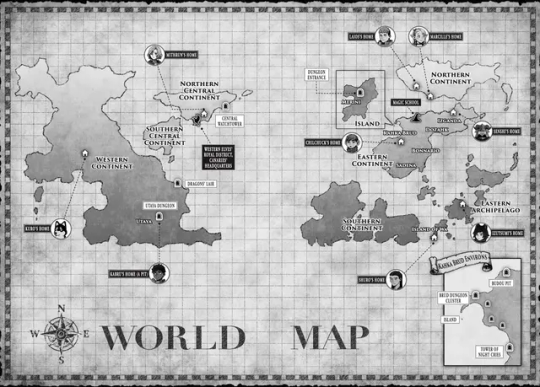
#dungeon meshi#worldbuilding#maps#The Island#dungeon meshi map#Dungeon Meshi Spoilers#the canaries#Laios Party#shuros party#Laios Touden#Falin Touden#Marcille Donato#Senshi#Senshi of Izganda#Kabru#Kabru of Utaya#Shuro#toshiro nakamoto#Kuro#Kuro Dungeon Meshi
475 notes
·
View notes
Note
Is there any special significance or traditions centered around the kinda of objects cluttered around the body at a saratoan funeral? Or is it soley based on color?
It’s such a cool funerary tradition to have, and it makes perfect sense for the species!
Most of the time, items around the body are things that were collected by friends and family during their loved one's life, just things they held onto because it reminded them of someone they like. So sometimes it's just color but other times it's color plus some other feature ("look at this mug, it's happy and yellow just like you")
Some believe it's a part of the process to let go of these things along with letting go of the deceased - though others retrieve their keepsakes at the end of the funeral.
The house leader and those who are less close tend toward items humans would find more traditional, like flowers and plush toys, but also candy and food is common. The thought there is to give them things they'd have liked in life but still themed to their color.
Professional funeral directors keep collections of random items of various colors to help fill out the spread and make it look better/fuller without rearranging where mourners placed things - they tend to prefer items that won't draw attention away from the odd, sometimes funny, items mourners brought which will serve as much needed conversation starters. They aim for their offerings to be small, unobtrusive and easy to overlook. They are generally the source of things like loose buttons, beads, and ribbons.
76 notes
·
View notes
Text

Comparison between Tovoxrans' first and current design! I think that now their design is more clear about its function and fits the ,,alien miner" vibe more.
Also I realised it looks like the chad vs virgin meme
#myart#alien#alien species#original alien species#sci fi#science fiction#speculative biology#speculative evolution#spec bio#spec evo#creature#creature design#monster design#tovoxrans#worldbuilding
51 notes
·
View notes
Text

Fantasy pronouns updated! i just keep running into Problems when I try to use the pronouns for a few paragraphs and then realize they actually sound awful. so i have been wrestling with them! it does not help that i made so many, and there's only so many ways to make decent pronouns before you run out of unique letter combos.
half the problem is just that I'm trying to make them all fit into english sentences, since that's the language my stories are written in. but i figured it would be so much cooler to write all my characters actually using the pronouns they'd be used to in their own languages, even if i don't get around to pulling a full Tolkein and writing every language out.
these pronouns will be especially useful in the side story I'm working on with a drow protagonist, since drow don't have gendered pronouns. and it adds so much more depth to my main story, when the bird dude protagonist, who was raised primarily by elves for Plot Reasons, embraces the bird people culture and changes pronouns to reflect this. if all of my characters were using regular human pronouns, and then suddenly the bird dude is using fantasy pronouns, it just feels awkward. but if everyone is already using fantasy pronouns, it's way more clear that this pronoun change is part of a bigger narrative of cultural identity.
anyway, as stated when i previously posted the fantasy pronouns chart, please feel free to use any of the pronouns here if you feel inspired to do so. i hope they function alright.
51 notes
·
View notes
Note
why is the snow of the island fake when krampus could have heat and Snow mister do there thing on the island
He made it without snow explicitly to keep snow elementals out. And to avoid damaging the toyfolk's bodies, of course.
He doesn't trust the likes of the Snow Queen or Jack Frost.
31 notes
·
View notes